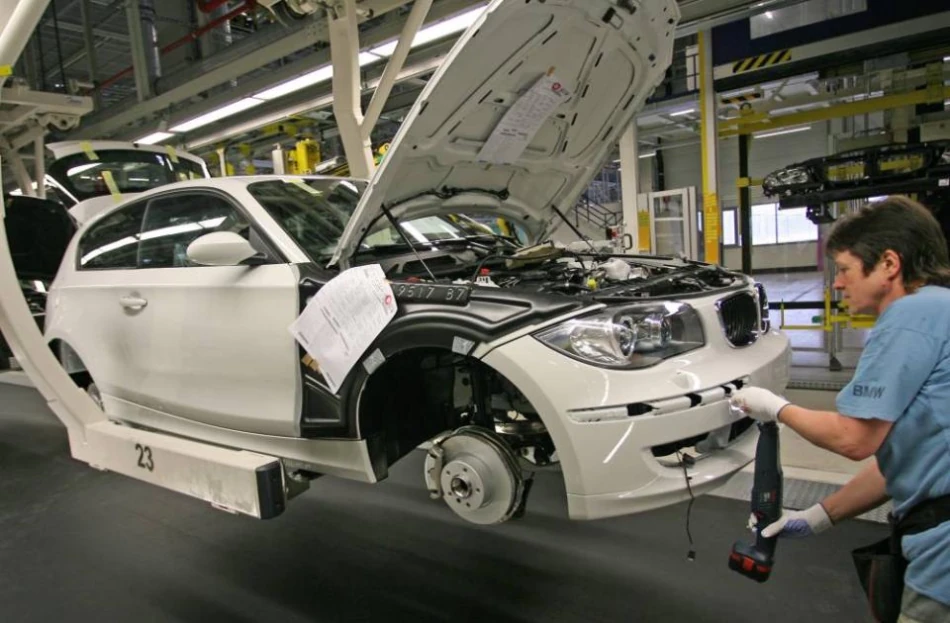
German Industrial Output Unexpectedly Declines in August
Germany's industrial output crashed 4.3% in August, far worse than the 1% drop economists expected. The main culprit was a massive 18.5% plunge in automotive production, highlighting deeper problems in Europe's largest economy.
The Federal Statistical Office released the numbers Wednesday, showing Germany's biggest industrial sector took a severe hit during August. Car manufacturers shut down plants for annual holidays and made production changes, but the scale of the decline suggests more than just seasonal factors at play.
Looking at quarterly data, which smooths out monthly swings, industrial output still fell 1.3% from June to August compared to the previous three months. This paints a picture of consistent weakness rather than a one-off bad month.
Here's why this matters for global markets: Germany's industrial engine has been sputtering for months as high energy costs, weak Chinese demand, and supply chain issues bite into manufacturing. The automotive sector, which employs over 800,000 people and drives much of Germany's export success, is particularly vulnerable to these headwinds.
The numbers come as German carmakers face intense competition from Chinese electric vehicle manufacturers and struggle with the transition away from traditional combustion engines. Major players like Volkswagen have warned about potential plant closures and job cuts as they grapple with falling sales and rising costs.
For investors, this data reinforces concerns about Germany's economic outlook heading into 2024. The country has been teetering on the edge of recession, and weak industrial production makes it harder for the economy to gain momentum. European markets and the euro could face additional pressure if this trend continues into the final months of the year.
Most Viewed News

 Omar Rahman
Omar Rahman






